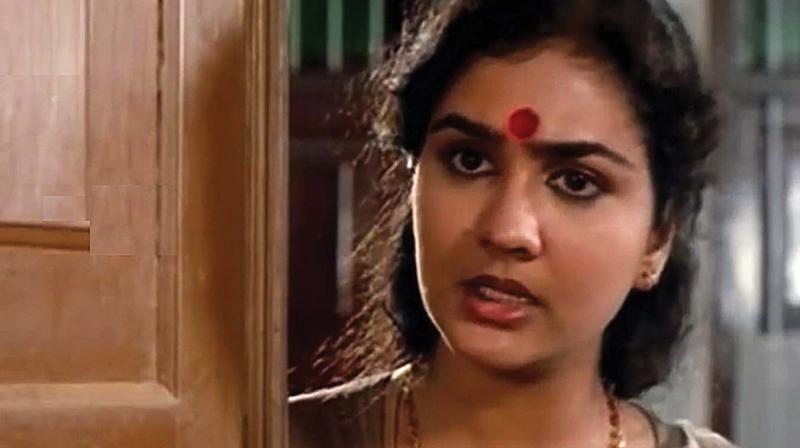The unconventional: Daring to be different
The actors breathe life into them with such conviction that they leave lasting imprints in the minds of cinegoers.

Fullpicture.in editor Neelima Menon picks seven characters who defy stereotypes, redefine and reconstruct certain celluloid tropes. The actors breathe life into them with such conviction that they leave lasting imprints in the minds of cinegoers.
Kanchana (Thalayanamanthram)
This materialistic, jealous middle-class housewife is one of the most regular, relatable, everyday characters you will see in every household. So, it seemed strange that such a woman never made an appearance on celluloid. For Malayalam film heroines, it was always a ‘choice’ between goodness, evil and saccharine sweetness. That’s why Kanchana was a delightful revelation. Sreenivasan sketches her with mirth, making it impossible for us to despise her. She is greedy, envious, plays the victim cannily and yet seems so ordinary. And of course, Urvashi gives it her all with a nuanced act, making Kanchana one of the most fascinating heroines of all times.
Aadu Thoma (Spadikam)
He is an antithesis to the righteous celluloid hero, yet he also redefines the archetypal mass hero. He strips his mundu before throwing punches, drinks, smokes, has a paramour and cares two hoots about law and order. But at heart he is a lonely, battered soul, who hides his eyes behind Ray Ban glasses. Mohanlal brings a swag and intensity to this multi-layered character, keeping the scales of an actor and a mass hero intact. That was a trailblazer for sure.
Kali Pillai (Ozhimuri)
For an actor previously known for her umpteen distasteful item numbers and B-grade Bollywood thrillers, the role of a towering matriarch Kali Pillai — one who practiced bigamy, ruled her family with an iron hand, drawled in a Travancore slang and feared none — is indeed one of the most stunning transformations of a female actor on screen. Shwetha Menon, literally, took the mickey out of us.
Ganga/Nagavalli (Manichitrathazhu)
Arguably the biggest litmus test for a great actor is to alter between two strong characters in the same frame. Shobana pulled it off with great aplomb in Manichithrathazhu as the modern, docile Ganga and the fiery, tempestuous, classical dancer Nagavalli. She not only gets into the spirit of the characters, but also carries both characters’ unique mannerisms in her — switching over into another language, culture, and milieu at the blink of an eye. This a character that goes through spectacular emotional upheavals and a performance that remains unmatched till today. No, not even in the remakes.
Bilal John Kurishingal (Big B)
During a time when heroes showed their machismo through long monologues and other shenanigans on screen, Bilal was an oddity. He was Sphinx-like, unsmiling; spoke in measured, gruff one-liners; was a loner and didn’t draw attention to himself. There was a sort of controlled aggression in his deadpan face and body language. There is a Western influence in that characterisation, a style that was refreshingly new in Malayalam cinema, inspiring a generation of actors to follow suit. Mammootty once spoke about how he used only his eyes to convey emotions and didn’t move his facial muscles. The dialogues can only be effective the way Bilal intones it and only Mammootty could have been Bilal.
Kuttan Thampuran (Sargam)
Kuttan Thampuran is an unpleasant paradox of a man. He is borderline insane and obnoxious, selfish, yet agonised at having caused anguish to his childhood friend, he decides to end his life. The characterisation is riddled with complexities and would have ideally gone to an experienced actor. But the then relatively new Manoj K. Jayan gets the detailing to the T and throws himself into the psyche of Kuttan Thampuran effectively, setting a new benchmark in Malayalam cinema.
Sethurama Iyer (Oru CBI Diary Kurippu)
What happens when an archetypal celluloid cop is stripped off bombast, heroic finery and high-octane action stunts? You get this zen-like calm, soft-spoken, Tamil-speaking CBI officer with his plain white shirts, brown trousers and a thin saffron tilak on his forehead. Mammootty’s performance echoes what Jabbar Patel, who directed him in Babasaheb Ambedkar, observed about the actor— “To show emotions is easy but how do you look intelligent?” There is a wisdom in his act, a body language that lets you believe that this person has been in the CBI for a long time.

